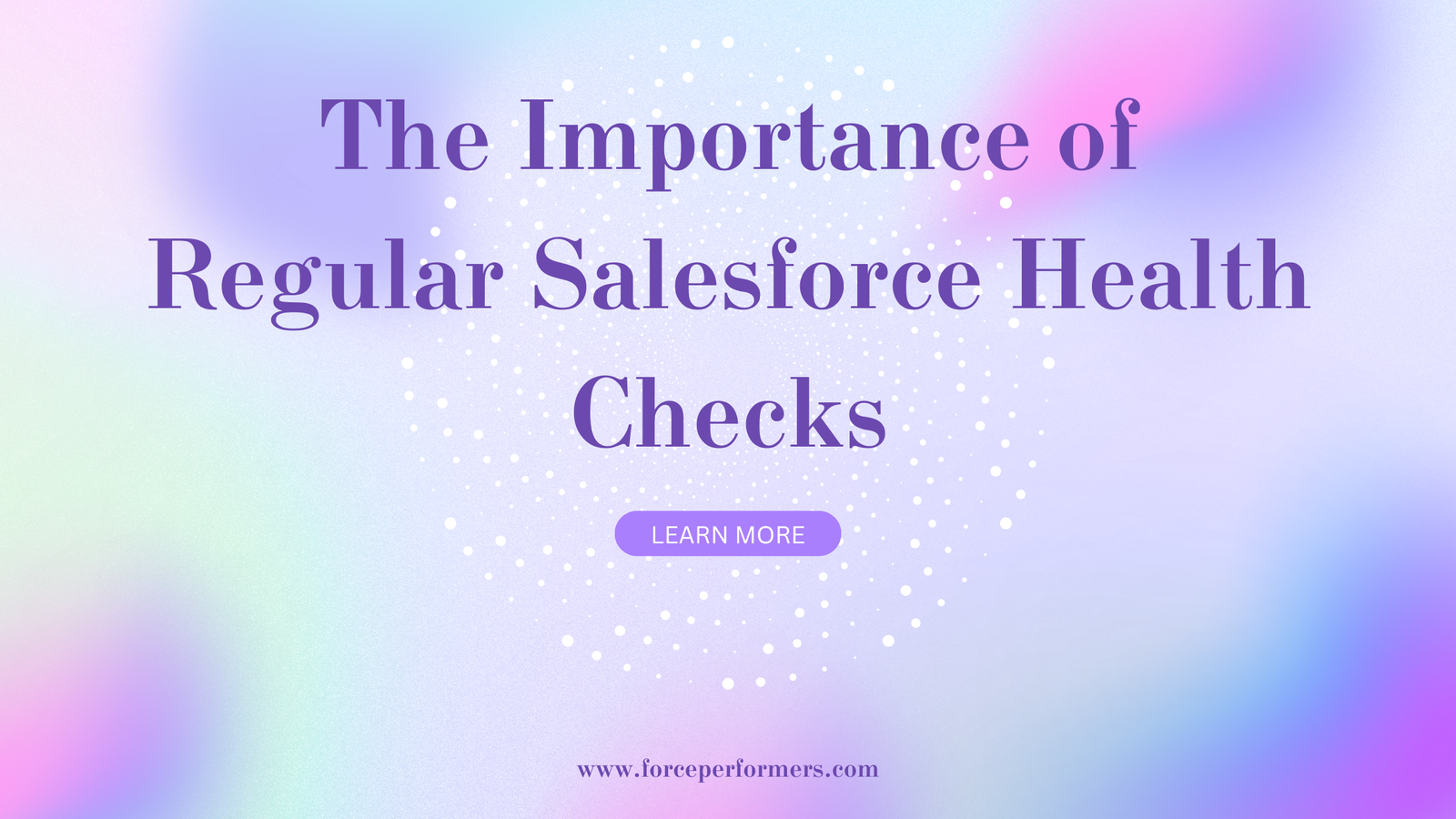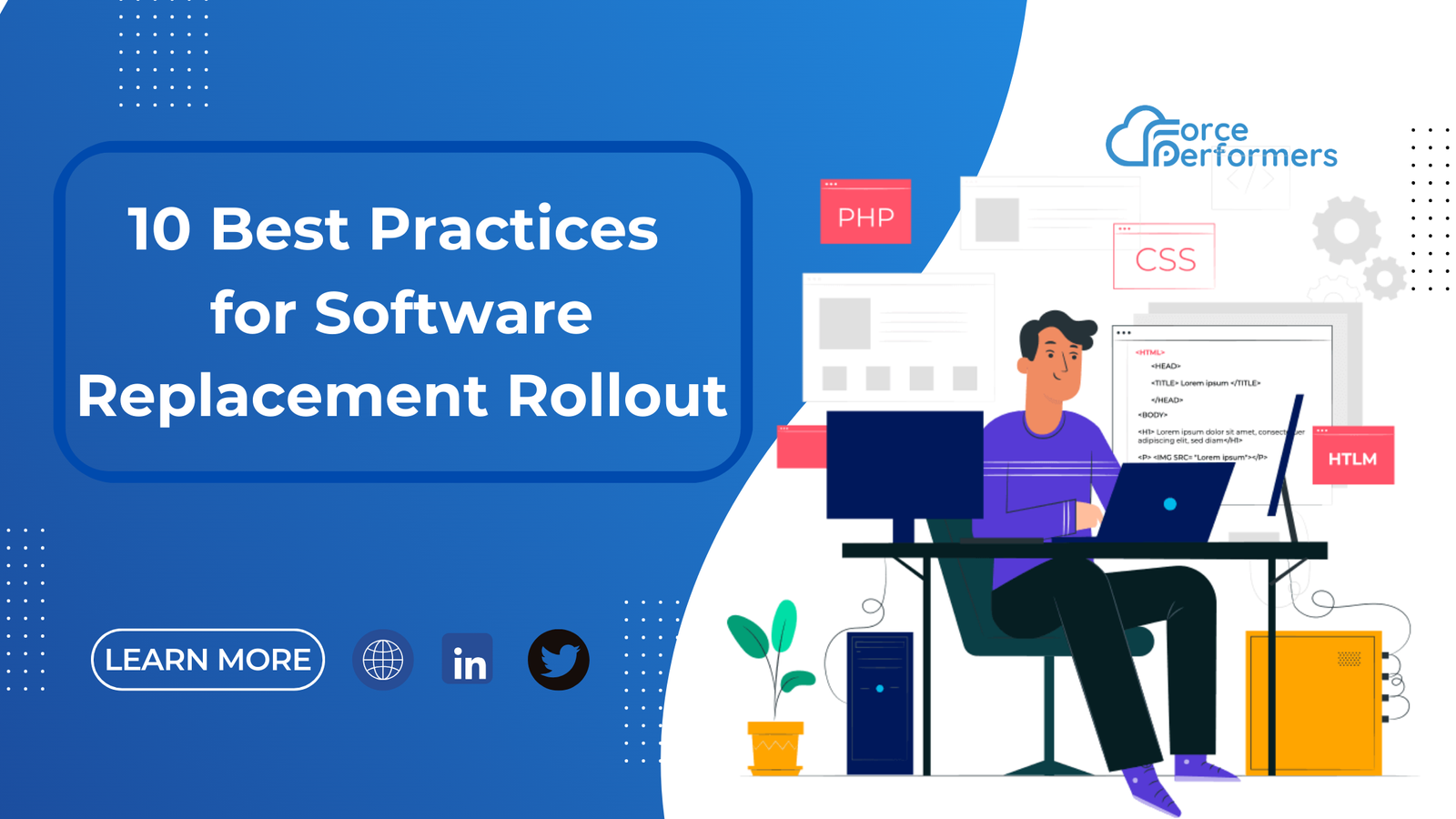Salesforce is a powerful CRM tool used by businesses to manage their customer relationships, streamline operations, and drive growth. However, to get the most out of Salesforce, it’s crucial to regularly assess its health and ensure it’s functioning optimally. Just like any system, Salesforce requires periodic health checks to identify areas for improvement, resolve potential issues, and ensure that your instance continues to meet your business needs.
In this blog, we’ll discuss the importance of regular Salesforce health checks and how they can improve system performance, enhance user experience, and prevent costly issues down the line. If you need expert guidance on conducting a Salesforce health check, visit our Top Salesforce Consultants page to find trusted professionals.

Why Regular Salesforce Health Checks Are Essential
1. Preventing Performance Issues
Salesforce is constantly evolving with new features and functionalities. Regular health checks ensure that your Salesforce instance is updated with the latest best practices, features, and security protocols. This can help you avoid performance bottlenecks and ensure that the system runs smoothly.
Why It Matters: A well-maintained Salesforce system leads to faster load times, better user experience, and fewer system crashes, all of which contribute to enhanced productivity.
If you’re looking to improve the performance of your Salesforce instance, check out our Top Salesforce Consultants page for expert help.
2. Identifying and Fixing Data Quality Issues
Data is at the core of Salesforce, and maintaining high-quality, accurate data is essential for decision-making and business growth. Regular health checks can identify and correct data issues, such as duplicate records, incomplete fields, and outdated information.
Why It Matters: Clean data ensures that your team can make informed decisions, maintain good relationships with customers, and avoid costly mistakes caused by inaccurate information.
To enhance data quality in Salesforce, consider reaching out to our Top Salesforce Consultants for professional guidance.
3. Enhancing Security and Compliance
Salesforce stores sensitive customer data, and ensuring that your instance complies with security standards and regulatory requirements is crucial. Health checks involve reviewing your Salesforce setup for security vulnerabilities and ensuring that all compliance requirements are met.
Why It Matters: A secure Salesforce environment protects your business from potential data breaches, safeguards customer information, and helps ensure compliance with data protection regulations like GDPR.
If you need help with Salesforce security and compliance checks, our Top Salesforce Consultants page can connect you with experts.
4. Optimizing User Experience
Salesforce is used by various teams across your organization, from sales to customer service. A health check evaluates the user experience for different teams, identifying areas where navigation, workflows, or automation can be improved.
Why It Matters: By enhancing the user interface and workflows, you improve team productivity, reduce frustration, and ensure that your team is getting the most value from Salesforce.
For advice on improving user experience in Salesforce, visit our Top Salesforce Consultants page for expert recommendations.
5. Ensuring Proper Integration with Other Systems
Salesforce is often integrated with other tools such as ERP systems, email marketing platforms, and customer support software. Regular health checks ensure that these integrations continue to work smoothly, preventing data silos and improving business processes.
Why It Matters: Well-maintained integrations enable your business to maintain a 360-degree view of customers and improve cross-departmental collaboration.
To ensure seamless Salesforce integrations, connect with the right experts on our Top Salesforce Consultants page.
How Often Should You Conduct Salesforce Health Checks?
To keep your Salesforce instance in top shape, regular health checks are essential. While the frequency of health checks may vary depending on your business size and needs, it’s generally recommended to conduct a comprehensive health check at least once a year. However, businesses with fast-changing needs or complex implementations might benefit from more frequent assessments.
Conclusion:
Regular Salesforce health checks are crucial to ensuring that your CRM platform continues to support your business objectives effectively. By preventing performance issues, improving data quality, enhancing security, optimizing the user experience, and ensuring seamless integrations, you can ensure that Salesforce continues to deliver maximum value to your business.
If you’re unsure where to start with your Salesforce health check or need expert assistance, visit our Top Salesforce Consultants page to connect with experienced consultants who can help you optimize your Salesforce environment.










